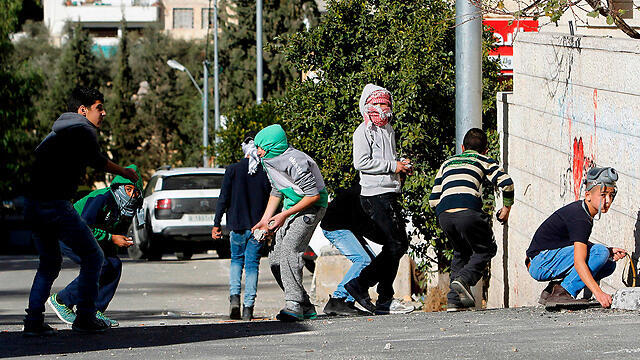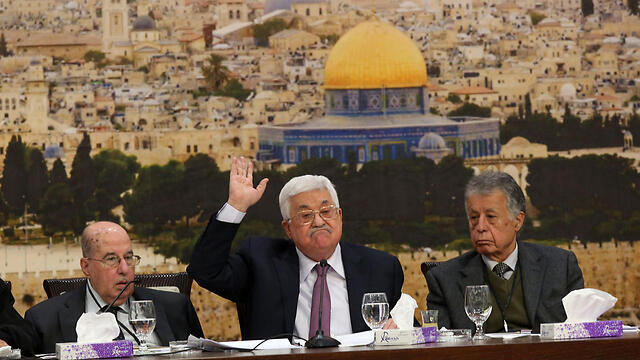Getting your Trinity Audio player ready...
How serious are the Palestinian threats to stop the security coordination with Israel? Here's an anecdote from the past few years.
In early March 2015, the Palestinian Liberation Organization (PLO) held its 27th convention. Its concluding statement was as follows: "The security coordination, in all its forms, will be halted in light of Israel's failure to abide by agreements signed between the two sides.
"The Executive Committee will monitor the activity of the Higher National Monitoring Committee with the International Criminal Court to settle the score with those responsible for Israel's war crimes—especially the settlements and the aggression against the Gaza Strip."
The headlines after the 2015 meeting gave the impression that the security coordination between Israel and the Palestinian Authority had come to an end. But three years later, almost nothing has changed.
The security coordination was somewhat suspended following the metal detector crisis at the Temple Mount last summer, as the placement of metal detectors at the entrance to the holy site was seen as an unusual and dramatic Israeli move which called for an unusual and dramatic Palestinian response. But shortly after the metal detectors were removed ,the security coordination was restored in full force. Did it have anything to do with the PLO Central Council's decision? Absolutely not.
On Monday, the Central Council's 28th convention concluded with a familiar recommendation: To reaffirm the vote to stop the security coordination in all its forms. The Palestinian leaders also voted to order the PLO to suspend its recognition of Israel until it "recognizes the state of Palestine", cancels its annexation of east Jerusalem and stops settlement activity, and decided the PLO should remove itself from the Paris Protocol on Economic Relations which was incorporated with into the Oslo II Accord.
Before we examine the meaning of the PLO Central Council's decision, we must first understand how the hierarchy in that organization works. The Central Council is the second most important body in the PLO. It convenes every few years, mostly following a dramatic event (this time, the reason was the American recognition of Jerusalem as Israel's capital).
2 View gallery


Riots in Bethlehem following Trump's recognition of Jerusalem as Israel's capital
(צילום: AFP)
The PLO's Executive Committee, a smaller body which serves as the organization's cabinet, is considered the highest body on paper, but is actually the second most important body. The real highest body is Palestinian President Mahmoud Abbas.
Abbas is the person who eventually decides which of the Central Council's recommendations should be accepted and which should remain as headlines or threats. That's what happened in 2015. The Central Council decided that the security coordination should be halted? So what? The coordination has only grown stronger since then.
There are very few people Abbas likes to consult with before making highly important decisions. They are the real cabinet. Some of them are more familiar to the Israeli public and some are less. If Abbas thinks he should stop the security coordination or suspend the recognition of Israel, he will consult them rather than the Central Council or the Executive Committee. He will convene these bodies only after making his decision, using them as a rubber stamp.
A week ago, several days before the Central Council conference, I met a Palestinian source in Ramallah who isn't particularly fond of the current government. At the sidelines of the meeting, he said: "The Central Council will convene, there will be huge headlines, and what will happen the next day? Nothing?"


